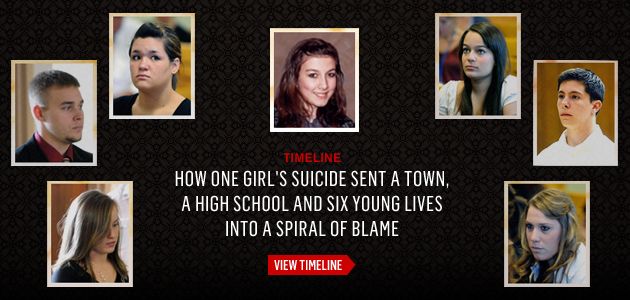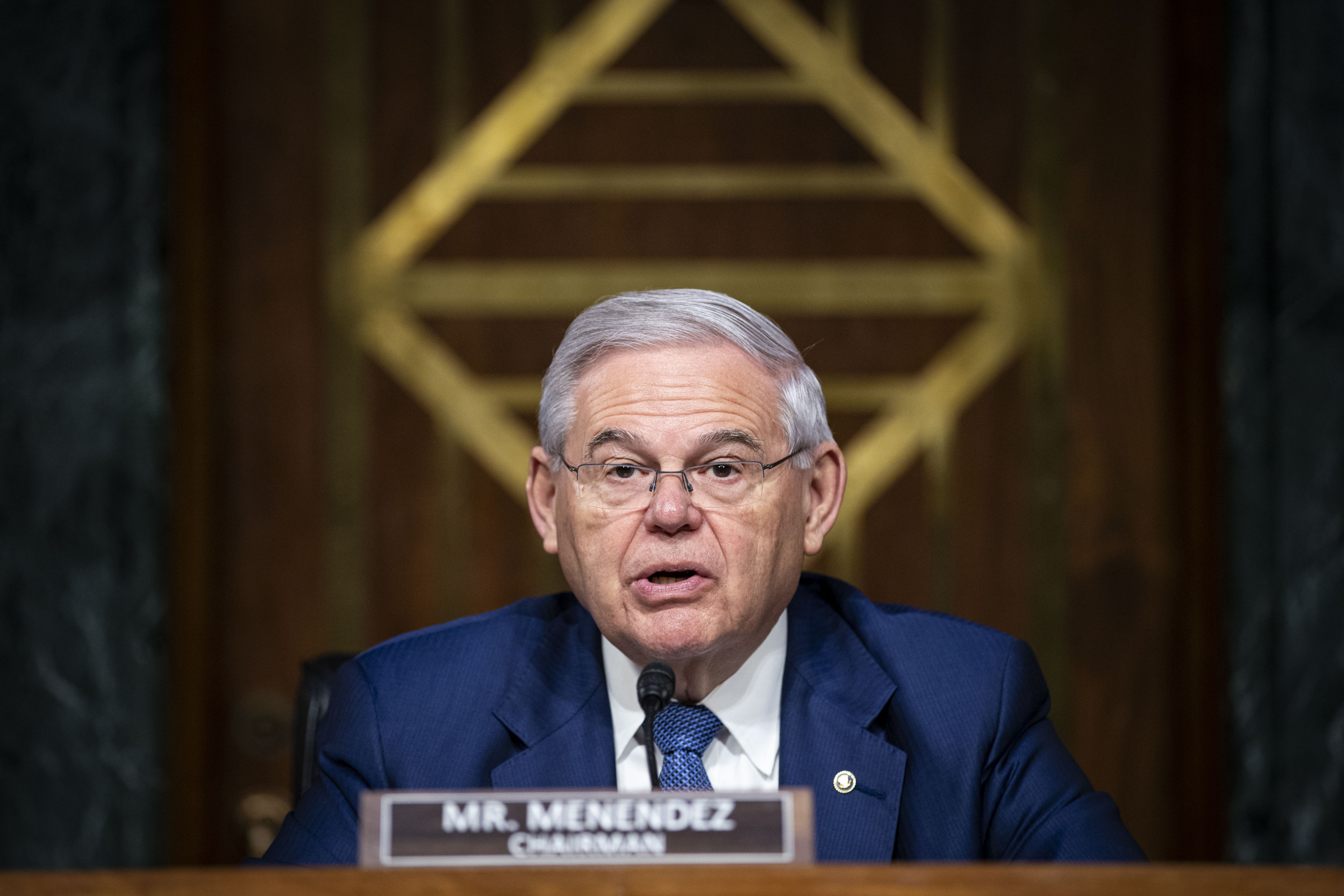
The long shadow of a young girl's suicide hangs like a haze over South Hadley, Massachusetts, these days. References to the bullying that's said to have pushed her over the edge pepper the local news. Students at her high school have learned to always be on the defense; one freshman says he has a home made T-shirt that proclaims proudly, "Yes, I Go to South Hadley. No, I'm Not a Bully." Now, even as a settlement is reached that will keep Phoebe Prince's bullies out of prison -- and, eventually, expunge their criminal records -- it's a legacy that residents of this New England town fear will be forever etched into the public perception, turning a sleepy, middle-class community into a kind of Columbine for the digital era.
Phoebe Prince, of course, is the 15-year-old girl who hung herself in January 2010 -- "bullied to death," it was alleged, by a pack of "mean girls" (and a couple of boys) who were her high school peers. Following a spate of gay teen suicides that had come before—including one just a town over, in Springfield—Prince's story thrust school bullying into the national spotlight, and motivated state governments to criminalize it (which 43 states have done.) For the past year and a half, South Hadley has been swarmed by reporters looking to dissect every possible angle of Prince's story: from her own troubled past (she had attempted suicide before) to the school's negligence in the case (how could they have missed the problem?) to what is perhaps second-most-shocking after the suicide itself: the criminal prosecution of the six students alleged to have bullied her.
Led by an aggressive local prosecutor, Elizabeth Scheibel, six of South Hadley's upper-classmen were yanked from school in March 2010, indicted on federal charges that ranged from stalking to criminal harassment to—in the case of two boys who'd allegedly had sex with Phoebe—statutory rape. At the time, charges of this nature were unheard of. "It was unprecedented," says Sam Goldberg, a former New York state prosecutor who runs a private criminal practice in Cambridge, Massachusetts. "In over a quarter century practicing criminal law, I've never seen anything like this."
Needless to say, Goldberg wasn't surprised when a resolution was reached in the case this week, presented by the DA who took over for Sheibel after she chose not to seek reelection. The pleas? Misdemeanor charges, continued for a probationary period—meaning if the terms of the probation are met (completion of a GED, community service) the teens would avoid a criminal record. To cries from local residents that the charges were too lenient—and everybody else who's decided to weigh in on this high-profile case—the district attorney rebuked. "Our goal as a prosecutor's office is to prosecute vigorously, but to make sure these youths become productive citizens," David Sullivan said in a statement, noting that the Prince family had approved the terms of the plea. The lesson, he added, is that "the era of turning a blind eye to bullying and harassment is over."
The short version of what happened at South Hadley High School began in the 2009 school year, during which Phoebe, a freshman, became involved with Sean Mulveyhill and Austin Renaud, both of whom had girlfriends. According to their indictments, the boys, their girlfriends, and students Ashley Longe and Sharon Velasquez engaged in what then-DA Scheibel described as a "nearly three-month campaign" of verbal assault and physical threats against Phoebe. What appear to be the worst of their crimes involved repeated taunts of "whore" and "Irish slut" (Phoebe had immigrated from Ireland); threats to "beat Phoebe up"; and, on the day of her death, a crumpled soda-can tossed toward her from the window of a moving car, which left Phoebe in tears. When Phoebe got home that afternoon, she texted a friend: "I can't do it anymore." At 4:30 p.m., her sister found her body, hanging from the scarf she'd given her for Christmas.
Phoebe's death, understandably, sent normally quiet South Hadley into a spiral of shame and finger-pointing. The school principal opened an internal investigation, but allowed the then-unidentified bullies to remain in class. The Boston Globe published a column chastising school officials for allowing the "untouchable mean girls" to remain in school, "defiant, unscathed." A Facebook group with the headline "Expel the three girls who caused Phoebe Prince to commit suicide" suddenly had thousands of fans. School officials took to the press, defending themselves against charges that they let the bullying go on, asserting they only learned of the problem the week before Phoebe's death, despite a number of allegations otherwise.
In court on Thursday, Prince's mother, Anne O'Brien, described her daughter as a "gorgeous," "intelligent," and "vivacious" young woman who "loved to write poetry and short stories." Speaking out for the first time publicly, O'Brien called the defendants' actions "predatory," in one case stating that one of the girl's age (she was a minor) allowed her to "escape any reasonable sentence." In tearful readings, O'Brien recounted how Phoebe "struggled to get through each day, hoping the next day would be better" and that instead of teaching her how to drive this summer--she would have turned 16--she'll be picking out a headstone (her remains were cremated). "My pain is unbearable," O'Brien wept. "I would not wish it on any parent."
But the Prince family has never wavered in what they wanted out of this case, at least according to the DA: Sullivan said the family's goal was public recognition of wrongdoing, acceptance of responsibility, and a spotlight on the bullying issue. All of that has been accomplished. Yet while it may close the book on the case itself, the truth is that nearly every corner of South Hadley remains infected.
There are ongoing allegations that the principal and superintendent at South Hadley High School didn't do enough to stop Prince's bullies—and that, as one local business owner puts it, instead of taking any responsibility for their actions "they let the kids hang instead." There is at least one civil lawsuit pending against the school, related to a separate allegation of failing to respond to allegations of bullying, on behalf of a student with Asperger's syndrome who happened to be a friend of Phoebe's. This week, South Hadley Superintendent Gus Sayer announced a new principal for South Hadley High School, following the resignation of the principal at the center of the scandal. "I worry about the kids in all of this, in high school, just trying to get an education," says David LaBrie, South Hadley's police chief, whose daughter is a junior. "It brought an important issue to light, but I think we're all ready for it to be over."
So are the alleged bullies. It's become taboo to say out loud, but the students charged have faced the kind of scrutiny and humiliation normally reserved for public figures--their names and faces plastered across news stations around the globe. "It's just been nonstop," says Colin Keefe, the attorney representing Sharon Velasquez, 17. "We're cognizant that there've been complaints that the defendants got off with a slap on the wrist. But I don't think anyone can even comprehend the extent of public punishment my client has gone through."
Assuming they successfully complete the requirements of their probation, they will walk away from this with clean records, if not clean slates. But with the exception of Velasquez, none has obtained a high school diploma, and all have been out of school for over a year. Mulveyhill, a senior, lost a football scholarship to college. And many of the students have faced public humiliation, Internet harassment—even death threats. "What they did was not good," says Gus Sayer, the South Hadley Superintendent. "But these are still young people who deserve a second chance." South Hadley might just need one too.
Uncommon Knowledge
Newsweek is committed to challenging conventional wisdom and finding connections in the search for common ground.
Newsweek is committed to challenging conventional wisdom and finding connections in the search for common ground.
About the writer
To read how Newsweek uses AI as a newsroom tool, Click here.





